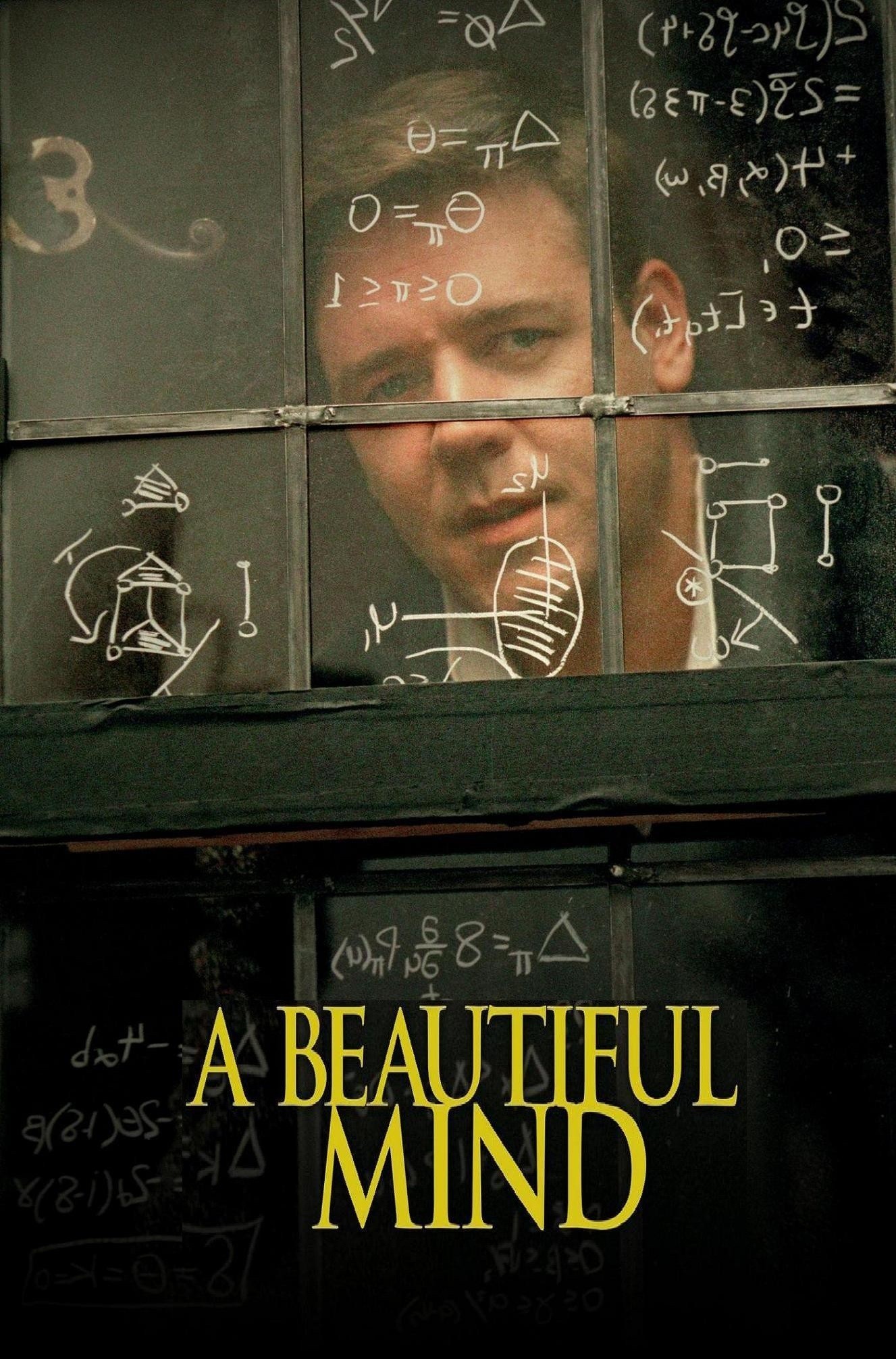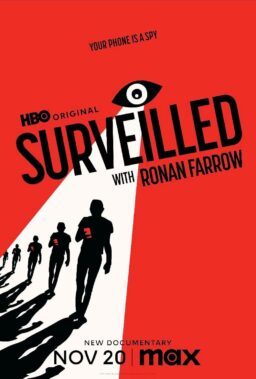A Beautiful Mind: A Mental Health Portrayal Descriptive Essay
Directed by Ron Howard in the year 2001, A Beautiful Mind is a chef-d’oeuvre film based on the life of Nobel Laureate in Economics, John Nash.
The film brings out the struggles that Nash encounters with his mental health. In the year 1948, Nash enrolls at Princeton University as a graduate student and immediately stands out from the others. Mostly, he keeps to himself, but in some occasions, he goes out with his classmates for drinks (Howard, 2001). Nash makes it his priority to find an original mathematical theorem.
His best friend while at Princeton is Charles Herman who doubles as his roommate. Later on, he works his way up the ladder to become a professor before taking Alicia as his wife in the same institution. With time, Nash becomes schizophrenic and thus as expected becomes disillusioned if not irrational. He retreats from the world, but in the 1970s, he gets back into the academics world and slowly returns to teaching and research. As fate would have it, John incredibly wins the 1994 coveted Nobel Prize in Economics (Howard, 2001).
The role of Nash as played by Russell Crowe, the protagonist in A Beautiful Mind film is to bring out the leading actor’s role in the film. He is the central character in the film and he ends up in conflict due to the struggles that he faces after being diagnosed with a mental disorder.
Nash’s role is to evoke intrigue and excitement coupled with many other emotions to the audience. Right from when he enters Princeton, his social life and determination to come up with a mathematical theorem, his falling in love and marrying Alicia, and finally his being a victim of a mental disorder, the audience is filled with different emotions.
At the beginning of the film, Nash stands out as a character full of ethics in that he lives a moral and virtuous life while in school, but later on after he marries Alicia, he puts his infant son in danger and knocks down Alicia together with the baby.
However, proponents of his ethical behavior would attribute this incidence to his mental disorder, schizophrenia (Howard, 2001). Overall, it is clear that his character is ethical and his shortcomings hinge on the fact that he suffered sudden illness, which he overcomes later.
In real life, the reality of the occurrences surrounding Nash is evident in the contemporary society. A person might be good at what he or she does and s/he might be living to his or her potential, but all over a sudden, s/he suffers from a disorder that pulls him or her behind and forces him/her to become inadequate since s/he has to rely on medication.
In addition, such people become dependants. Such people might even die and a good example is Steve Jobs of Apple Inc. who bowed to cancer. However, with good support from family and friends, one can pull through and go back to living a normal life again, like the case of Nash in the movie.
Against all odds, Alicia sticks with her sick husband even when the circumstances dictate otherwise. Later on, John luckily wins the confidence of the Princeton University where he secures the chance to work in the mathematics sector under the support of his former ally cum competitor, Dr. Hansen.
Howard, R. (Executive Director). (2001). A Beautiful Mind. [DVD]. USA: Universal Pictures.
- Fried Green Tomatoes Movie
- Philadelphia: Prejudice About Homosexuality
- An Analysis of the Character John Nash in the Movie A Beautiful Mind
- “Ladybird Ladybird” a Film by Ken Loach
- Is Faux Fur Responsible for the Rebirth of the highly coveted Real Fur to the Fashion Industry?
- Achieving One's Goals in the Movie "Bicycle Thieves"
- Does the Idea of National Cinema Still Have Relevance in the Age of Globalization?
- The Movie Exhibition Industry
- "Metropolis" by Fritz Lang
- Children of Heaven: Family Values and Norms
- Chicago (A-D)
- Chicago (N-B)
IvyPanda. (2018, June 18). A Beautiful Mind: A Mental Health Portrayal. https://ivypanda.com/essays/a-beautiful-mind/
"A Beautiful Mind: A Mental Health Portrayal." IvyPanda , 18 June 2018, ivypanda.com/essays/a-beautiful-mind/.
IvyPanda . (2018) 'A Beautiful Mind: A Mental Health Portrayal'. 18 June.
IvyPanda . 2018. "A Beautiful Mind: A Mental Health Portrayal." June 18, 2018. https://ivypanda.com/essays/a-beautiful-mind/.
1. IvyPanda . "A Beautiful Mind: A Mental Health Portrayal." June 18, 2018. https://ivypanda.com/essays/a-beautiful-mind/.
Bibliography
IvyPanda . "A Beautiful Mind: A Mental Health Portrayal." June 18, 2018. https://ivypanda.com/essays/a-beautiful-mind/.
- To find inspiration for your paper and overcome writer’s block
- As a source of information (ensure proper referencing)
- As a template for you assignment

A Beautiful Mind
The Nobel Prize winner John Forbes Nash Jr. still teaches at Princeton, and walks to campus every day. That these commonplace statements nearly brought tears to my eyes suggests the power of "A Beautiful Mind," the story of a man who is one of the greatest mathematicians, and a victim of schizophrenia. Nash's discoveries in game theory have an impact on our lives every day. He also believed for a time that Russians were sending him coded messages on the front page of the New York Times.
"A Beautiful Mind" stars Russell Crowe as Nash, and Jennifer Connelly as his wife, Alicia, who is pregnant with their child when the first symptoms of his disease become apparent. It tells the story of a man whose mind was of enormous service to humanity while at the same time betrayed him with frightening delusions. Crowe brings the character to life by sidestepping sensationalism and building with small behavioral details. He shows a man who descends into madness and then, unexpectedly, regains the ability to function in the academic world. Nash has been compared to Newton, Mendel and Darwin, but was also for many years just a man muttering to himself in the corner.
Director Ron Howard is able to suggest a core of goodness in Nash that inspired his wife and others to stand by him, to keep hope and, in her words in his darkest hour, "to believe that something extraordinary is possible." The movie's Nash begins as a quiet but cocky young man with a West Virginia accent, who gradually turns into a tortured, secretive paranoid who believes he is a spy being trailed by government agents. Crowe, who has an uncanny ability to modify his look to fit a role, always seems convincing as a man who ages 47 years during the film.
The early Nash, seen at Princeton in the late 1940s, calmly tells a scholarship winner "there is not a single seminal idea on either of your papers." When he loses at a game of Go, he explains: "I had the first move. My play was perfect. The game is flawed." He is aware of his impact on others ("I don't much like people and they don't much like me") and recalls that his first-grade teacher said he was "born with two helpings of brain and a half-helping of heart." It is Alicia who helps him find the heart. She is a graduate student when they meet, is attracted to his genius, is touched by his loneliness, is able to accept his idea of courtship when he informs her, "Ritual requires we proceed with a number of platonic activities before we have sex." To the degree that he can be touched, she touches him, although often he seems trapped inside himself; Sylvia Nasar , who wrote the 1998 biography that informs Akiva Goldsman's screenplay, begins her book by quoting Wordsworth about "a man forever voyaging through strange seas of Thought, alone." Nash's schizophrenia takes a literal, visual form. He believes he is being pursued by a federal agent ( Ed Harris ), and imagines himself in chase scenes that seem inspired by 1940s crime movies. He begins to find patterns where no patterns exist. One night he and Alicia stand under the sky and he asks her to name any object, and then connects stars to draw it. Romantic, but it's not so romantic when she discovers his office thickly papered with countless bits torn from newspapers and magazines and connected by frantic lines into imaginary patterns.
The movie traces his treatment by an understanding psychiatrist ( Christopher Plummer ), and his agonizing courses of insulin shock therapy. Medication helps him improve somewhat--but only, of course, when he takes the medication. Eventually newer drugs are more effective, and he begins a tentative re-entry into the academic world at Princeton.
The movie fascinated me about the life of this man, and I sought more information, finding that for many years he was a recluse, wandering the campus, talking to no one, drinking coffee, smoking cigarettes, paging through piles of newspapers and magazines. And then one day he paid a quite ordinary compliment to a colleague about his daughter, and it was noticed that Nash seemed better.
There is a remarkable scene in the movie when a representative for the Nobel committee ( Austin Pendleton ) comes visiting, and hints that he is being "considered" for the prize. Nash observes that people are usually informed they have won, not that they are being considered: "You came here to find out if I am crazy and would screw everything up if I won." He did win, and did not screw everything up.
The movies have a way of pushing mental illness into corners. It is grotesque, sensational, cute, funny, willful, tragic or perverse. Here it is simply a disease, which renders life almost but not quite impossible for Nash and his wife, before he becomes one of the lucky ones to pull out of the downward spiral.
When he won the Nobel, Nash was asked to write about his life, and he was honest enough to say his recovery is "not entirely a matter of joy." He observes: "Without his 'madness,' Zarathustra would necessarily have been only another of the millions or billions of human individuals who have lived and then been forgotten." Without his madness, would Nash have also lived and then been forgotten? Did his ability to penetrate the most difficult reaches of mathematical thought somehow come with a price attached? The movie does not know and cannot say.
(Note: For Nash's autobiographical statement, go to www.nobel.se/economics/laureates/1994/nash-autobio.html)

Roger Ebert
Roger Ebert was the film critic of the Chicago Sun-Times from 1967 until his death in 2013. In 1975, he won the Pulitzer Prize for distinguished criticism.

- Judd Hirsch as Helinger
- Paul Bettany as Charles
- Jennifer Connelly as Alicia
- Russell Crowe as John Nash
- Ed Harris as Parcher
- Christopher Plummer as Dr. Rosen
Directed by
Based on the book by.
- Sylvia Nasar
Leave a comment
Now playing.

Night Is Not Eternal

All We Imagine as Light

Elton John: Never Too Late

The Creep Tapes

Small Things Like These

Bird (2024)

Meanwhile on Earth
Latest articles.

“Call of Duty: Black Ops 6” is Best Installment in the Franchise in Years

Love Is Political: Payal Kapadia on "All We Imagine as Light"

Tokyo International Film Festival 2024: Daihachi Yoshida on Prize-Winning “Teki Cometh”


“Life is Strange: Double Exposure” Resurrects Beloved Franchise
The best movie reviews, in your inbox.
- Undergraduate
- High School
- Architecture
- American History
- Asian History
- Antique Literature
- American Literature
- Asian Literature
- Classic English Literature
- World Literature
- Creative Writing
- Linguistics
- Criminal Justice
- Legal Issues
- Anthropology
- Archaeology
- Political Science
- World Affairs
- African-American Studies
- East European Studies
- Latin-American Studies
- Native-American Studies
- West European Studies
- Family and Consumer Science
- Social Issues
- Women and Gender Studies
- Social Work
- Natural Sciences
- Pharmacology
- Earth science
- Agriculture
- Agricultural Studies
- Computer Science
- IT Management
- Mathematics
- Investments
- Engineering and Technology
- Engineering
- Aeronautics
- Medicine and Health
- Alternative Medicine
- Communications and Media
- Advertising
- Communication Strategies
- Public Relations
- Educational Theories
- Teacher's Career
- Chicago/Turabian
- Company Analysis
- Education Theories
- Shakespeare
- Canadian Studies
- Food Safety
- Relation of Global Warming and Extreme Weather Condition
Movie Review
- Admission Essay
- Annotated Bibliography
- Application Essay
Article Critique
- Article Review
- Article Writing
- Book Review
- Business Plan
- Business Proposal
- Capstone Project
- Cover Letter
- Creative Essay
- Dissertation
- Dissertation - Abstract
- Dissertation - Conclusion
- Dissertation - Discussion
- Dissertation - Hypothesis
- Dissertation - Introduction
- Dissertation - Literature
- Dissertation - Methodology
- Dissertation - Results
- GCSE Coursework
- Grant Proposal
- Marketing Plan
- Multiple Choice Quiz
- Personal Statement
- Power Point Presentation
- Power Point Presentation With Speaker Notes
- Questionnaire
- Reaction Paper
- Research Paper
Research Proposal
- SWOT analysis
- Thesis Paper
- Online Quiz
- Literature Review
- Movie Analysis
- Statistics problem
- Math Problem
- All papers examples
- How It Works
- Money Back Policy
- Terms of Use
- Privacy Policy
- We Are Hiring
“A Beautiful Mind” Psychology Analysis, Movie Review Example
Pages: 4
Words: 1055
Hire a Writer for Custom Movie Review
Use 10% Off Discount: "custom10" in 1 Click 👇
You are free to use it as an inspiration or a source for your own work.
“A Beautiful Mind”, starring Russell Crowe is a psychological drama that details the real-life experiences of brilliant mathematician John Forbes Nash. A prodigy student at Princeton University, Nash was able to do Nobel Prize Winning work as a student. In addition, John Nash is a paranoid schizophrenic.
The movie outlines his brilliance as a mathematician, which led him to teaching. The movie outlines his romantic relationship with his student, the future Alicia Nash. At the same time, John Nash became involved in what seems like a secret government code-breaking operation.
John Nash eventually cracks. The government work he believed he was doing was a product of his schizophrenia, and Nash was institutionalized. Eventually he was released after discovering that his college roommate, and best friend, Charles, was also a product of his delusions. When released, he was heavily medicated.
Eventually recognized and given his deserved Nobel Prize, the main point of the movie is how Nash was able to use his incredible mind to regain control of his normally debilitating mental disorder. This is certainly illustrated at the end of the film, when Nash asks “Charles” why the niece he frequently has with him never aged.
Keeping in mind this is a true story, this is clear proof that John Nash was able to overcome his diagnosis of schizophrenia, which is absolutely correct, and very apparent throughout John Nash’s experiences throughout the film.
John Nash perfectly fits the DSM criteria for a paranoid schizophrenic. With specific reference to Criterion A symptoms, in which only one is necessary, Nash exhibits three very clearly. He clearly has delusions, one symptom, as well as hallucinations and disorganized speech, two other symptoms (DNA Learning Center, 2013).
Looking now at Criterion B for schizophrenia, John Nash certainly exhibits this behavior as well. It cites that the disturbances in behavior interfere with interpersonal relationships such as work, romantic, or self-care. This is very apparent in John Nash’s behavior throughout the film (DNA Learning Center, 2013).
The DSM criteria for schizophrenia in section C, deals with the duration of the symptoms. They determine that a patient must experience the above symptoms for at least six months. John Nash’s hallucinations clearly lasted for years in his experiences with Charles, so naturally he fits perfectly (DNA Learning Center, 2013).
Being that the film was a realistic portrayal of John Nash, the movie very accurately portrayed schizophrenia as a whole. More specifically, Nash was portrayed as a classic paranoid schizophrenic, and Russell Crowe played this role perfectly.
John Nash received a number of different treatments throughout the movie. After receiving regular ECT treatments after his initial psychotic break, he was prescribed medication that left him heavily sedated. The medication itself is never listed, but judging by the effects portrayed and the time period, it was most likely Lithium, the first and still used treatment for schizophrenia,
As is very typical with schizophrenics, once Nash had a grasp on reality he began to stop taking his medication. This, in turn, caused yet another psychotic break, causing more ECT treatments, and more medication.
The amount of ECT used on John Nash was considered standard treatment for most Bipolar and Schizophrenic patients of the time, especially those with paranoid delusions. Though these treatments are still used today, the ethics behind them have frequently been questioned, as has their effectiveness as a management tool, rather than an actual treatment. It is only John Nash’s incredible mind that allowed him to remain as intelligent as he was after the treatments–most at the time were left as zombies, unable to have any cognitive brain function at all.
The heavy doses of psychiatric medication prescribed to John Nash was also very typical of the time period. Again, the medication was never mentioned by name, but was probably a combination of Lithium and any number of medications known as “typical antipsychotics”, such as Haldol. His sedation was very apparent when he was on these medications, and this is a very accurate depiction of the side effects of both the medications and the ECT treatment itself.
The impact John Nash’s psychiatric disorder had on his family members, and even his peers, was very apparent throughout the depiction of Nash’s psychiatric break, and subsequent “rise from the ashes”. The social consequences spanned from his work to his home life.
There was a scene in the film where John Nash was supposed to be watching his child in the bathtub. This was after he went off of his psychiatric medication. He experienced a delusion of his seemingly government handler, and became distracted. His wife came just in time to rescue the baby from drowning. This directly led to one of his sessions in a mental institution. Not only did this almost result in the death of his child, it almost completely destroyed his marriage as well.
John Nash also had a psychotic breakdown while on the campus of Princeton University, after he requested use of their library. He was granted permission, and at first was treated with apprehension, before gradually assimilating, and tutoring graduate students for free. Unfortunately, one day Charles decided to show up while he was on the campus, after he spent so much time rebuilding his reputation–and John Nash was again discredited.
Eventually, John Nash had a conversation with Charles in the movie. It was depicted that he simply used his logic to determine that Charles’ niece had never aged in the amount of time he had known her. This led him to telling Charles he knew for sure that he was not real, and that he would no longer be acknowledging either of them as real people.
Overall, “A Beautiful Mind” shows a very heartwarming and accurate story of the life of John Nash, and the adversity he had to face his entire life dealing with schizophrenia. Throughout all of his ECT treatments, medications, and doctors, John Nash was able to beat his disease using his aptly termed “beautiful mind”, calling modern psychiatric into question. Do all patients need the same treatment, or should patients be treated more individually? John Nash’s mind was almost destroyed by something meant to preserve.
John Nash should make every psychiatrist reevaluate any patient recommended for ECT treatments–and all of the pros and cons closely scrutinized–before risking a treatment that is truly irreversible.
Butcher, James. “Abnormal Psychology”. 14th ed. 2012.
“DSM-IV Criteria for Schizophrenia :: DNA Learning Center.” DNALC Blogs . N.p., n.d. Web. 20 Apr. 2013. <http://www.dnalc.org/view/899-DSM-IV-Criteria-for-Schizophrenia.html>.
Stuck with your Movie Review?
Get in touch with one of our experts for instant help!
Help-Seeking Behaviors in Vietnamese With Mental Health Problems, Research Proposal Example
Analysis of Persuasive Techniques, Article Critique Example
Time is precious
don’t waste it!
Plagiarism-free guarantee
Privacy guarantee
Secure checkout
Money back guarantee

Related Movie Review Samples & Examples
The globalized world, quiz example.
Pages: 11
Words: 2954
Economic Sanctions, Research Paper Example
Pages: 10
Words: 2872
The Descendants, Movie Review Example
Pages: 2
Words: 416
Catheter- Associated Urinary Tract Infection Prevention, Term Paper Example
Pages: 7
Words: 1819
Children of Men, Movie Review Example
Words: 558
Deviance and Social Control in Stand and Deliver, Movie Review Example
Pages: 5
Words: 1351
Analysis of a Beautiful Mind
How it works
- 1 Introduction
- 2 Depiction of Mental Illness
- 3 The Intersection of Genius and Madness
- 4 Societal Impact and Implications
- 5 Conclusion
Introduction
"A Beautiful Mind," directed by Ron Howard and hitting theaters in 2001, is a drama based on the real-life story of John Nash. Nash was a math genius who battled paranoid schizophrenia. The movie, which takes its cue from Sylvia Nasar's biography of Nash, gives us a look into both his academic triumphs and his struggles with mental illness. In this essay, I'll dive into how the film shows mental illness, the mix of genius and madness, and what Nash's story means for society. Need a custom essay on the same topic? Give us your paper requirements, choose a writer and we’ll deliver the highest-quality essay! Order now
Depiction of Mental Illness
The intersection of genius and madness, societal impact and implications.
In the end, "A Beautiful Mind" offers a touching look at John Nash’s life, giving us insights into living with paranoid schizophrenia and the link between genius and madness. The film’s respectful and empathetic take on mental illness, along with its focus on the need for support systems and challenging societal stigmas, makes it impactful. By telling Nash’s story with authenticity and care, "A Beautiful Mind" not only entertains but also educates, helping us understand mental health better. It’s an important film in the ongoing conversation about mental illness and what it means to be human.
Cite this page
Analysis of A Beautiful Mind. (2024, Sep 17). Retrieved from https://papersowl.com/examples/analysis-of-a-beautiful-mind/
"Analysis of A Beautiful Mind." PapersOwl.com , 17 Sep 2024, https://papersowl.com/examples/analysis-of-a-beautiful-mind/
PapersOwl.com. (2024). Analysis of A Beautiful Mind . [Online]. Available at: https://papersowl.com/examples/analysis-of-a-beautiful-mind/ [Accessed: 21 Nov. 2024]
"Analysis of A Beautiful Mind." PapersOwl.com, Sep 17, 2024. Accessed November 21, 2024. https://papersowl.com/examples/analysis-of-a-beautiful-mind/
"Analysis of A Beautiful Mind," PapersOwl.com , 17-Sep-2024. [Online]. Available: https://papersowl.com/examples/analysis-of-a-beautiful-mind/. [Accessed: 21-Nov-2024]
PapersOwl.com. (2024). Analysis of A Beautiful Mind . [Online]. Available at: https://papersowl.com/examples/analysis-of-a-beautiful-mind/ [Accessed: 21-Nov-2024]
Don't let plagiarism ruin your grade
Hire a writer to get a unique paper crafted to your needs.

Our writers will help you fix any mistakes and get an A+!
Please check your inbox.
You can order an original essay written according to your instructions.
Trusted by over 1 million students worldwide
1. Tell Us Your Requirements
2. Pick your perfect writer
3. Get Your Paper and Pay
Hi! I'm Amy, your personal assistant!
Don't know where to start? Give me your paper requirements and I connect you to an academic expert.
short deadlines
100% Plagiarism-Free
Certified writers

IMAGES
VIDEO